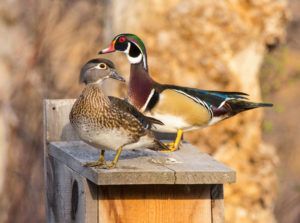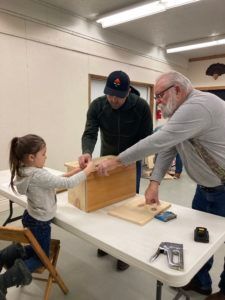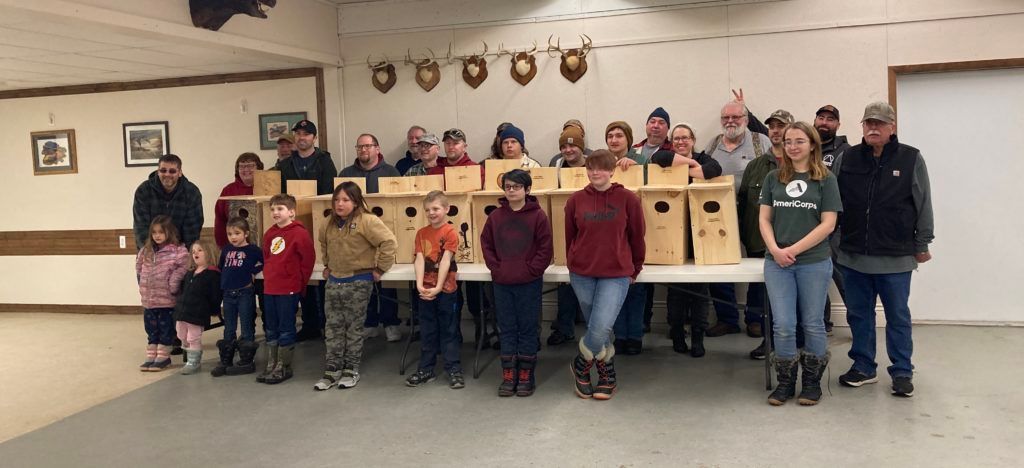On the Ground: Wood Duck Nest Box Building Event Engages Local Youth in Conservation

Drake and hen wood duck. Photo provided by Ducks Unlimited.
Last Saturday, January 29, 2022, a group of 28 individuals and families took part in a wood duck nest box building event at Marion Springs Conservation Club (MSCC) . This event was hosted in partnership with Michigan United Conservation Clubs (MUCC) and their On the Ground (OTG) wildlife habitat improvement program.
To start the day, attendees learned about MSCC and MUCC before learning more about the wood duck and its unique management and conservation needs. Families were given the opportunity to view a drake wood duck mount that an MSCC member provided for the event, and MUCC provide drake and hen wood duck decoys so youth and adults could learn how to properly identify the species.

MSCC President Ted Schulz assists a family in assembling their wood duck nest box at the January 29, 2022 event at MSCC.
Pushed to the brink of extinction in the early twentieth century, wood ducks faced a loss of natural nesting cavities due to logging and pressure from overhunting. However, the passing of the Migratory Bird Treaty Act in 1918 provided these stunning waterfowl with the break they needed to begin rebounding across North America, and conservation efforts to improve nesting opportunities proved vital in the recovery of the species. Natural nest cavities continue to be rare in many parts of North America, and thus conservationists have relied on manmade nesting boxes as supplemental habitat. When placed correctly, wood ducks readily use these boxes to nest.
Once all of the nest box kits were cut and prepared by MSCC volunteers, attendees got started building the boxes. The first step involved attaching a sheet of thin wire to the inside of the front of the box where the hole is so that wood ducklings have something to cling to when climbing out of the next box. After that, attendees utilized power drills to assemble the boxes and often worked together and with MSCC volunteers to improve their building technique.
When not building wood duck nest boxes, volunteers also had the opportunity to practice their waterfowl identification using decoys and identification guides provided by MUCC. It was a great supplement to the day’s building activity, as youth and adults alike were able to learn a bit more about the diverse waterfowl that rely on Michigan’s waters and wetlands for habitat.
To learn more about MUCC’s award-winning On the Ground program and register to volunteer at an event near you, please visit mucc.org/on-the-ground. Our next event will involve placing new wood duck nest boxes and improving old wood duck nest boxes in the Maple River State Game Area on Saturday, February 19, 2022 from 9 a.m. to 2 p.m. This event will be hosted in partnership with MUCC, the Maple River Wildlife Association, and the Michigan DNR. To learn more about this event or to register, please visit the webpage HERE.

Attendees and MSCC volunteers pose with some of the wood duck nest boxes built during the January 29, 2022 On the Ground (OTG) event at Marion Springs Conservation Club.
Recent Posts



